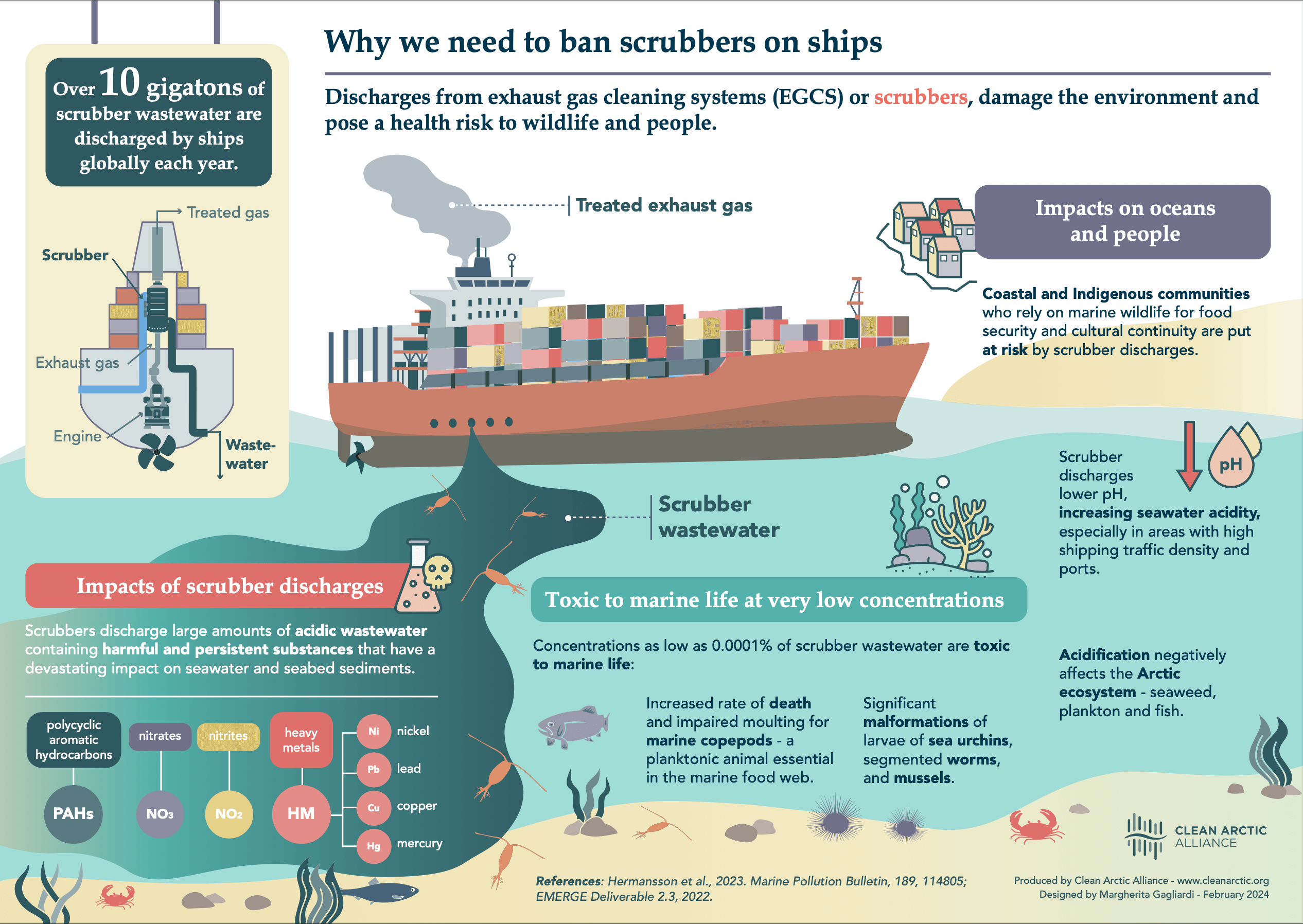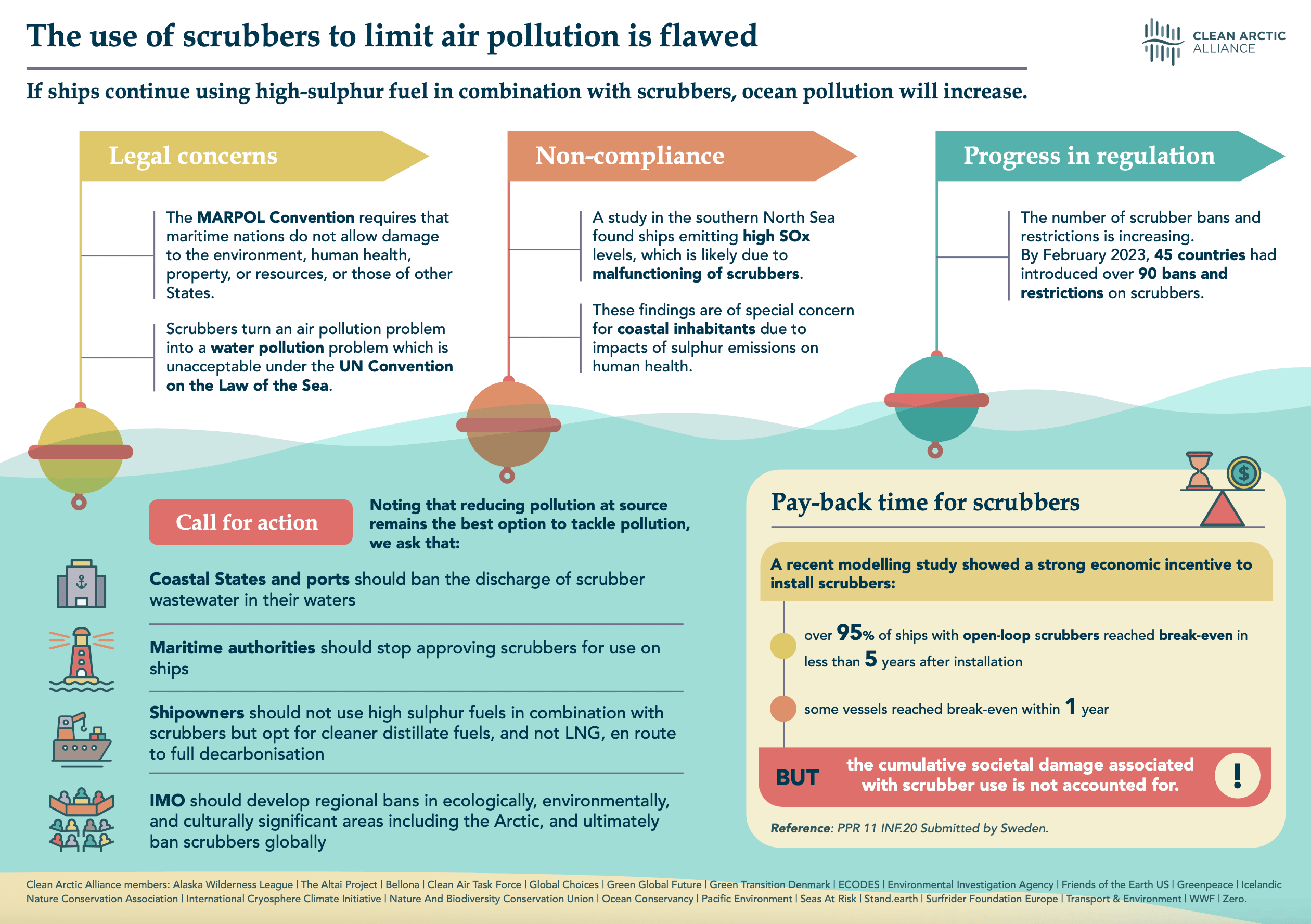Scrubbers, SOx and effluents
![]()
Since January 2020, the allowable sulphur content on ships’ fuels has decreased from 4.5% to 0.5%. Ships burning high sulphur heavy fuel oils (HFO) can use exhaust gas cleaning systems (EGCS) or scrubbers to remove excess sulphur to comply with the new sulphur standard and allow ships to continue to use of heavy fuel oils, the most polluting type of marine fuel. However, scrubbers turn an air pollution problem into an ocean pollution problem.
Scrubbers neutralize the acidic exhaust gases, created when burning HFO, by mixing them with alkaline scrubbing material and remove pollutants such as sulphur. This results in wash water effluent which is then discharged overboard, containing not only the sulphur but also a range of other toxic polluting substances including polycyclic aromatic hydrocarbons (PAHs) and heavy metals which accumulate in the environment, have carcinogenic effects, can cause mutations and impact marine life. Scientific analysis (Thor et al. (2021)) provides a long list of substances found in scrubber wash water, including ten different metals and a multitude of PAHs and concludes “that effluents from maritime scrubber systems, whether they originate from open-loop or closed-loop systems, are highly toxic to zooplanktonic organisms”. These animals are central components of marine food chains.
A report published by the International Council on Clean Transportation (ICCT) in November 2020 found that using HFO with scrubbers is not equivalently effective at reducing air pollution compared to using lower sulfur fuels, such as marine gas oil (MGO). In addition the scrubber effluent discharge is warmer and more acidic than the surrounding water and increasing acidity makes toxic heavy metals more bioavailable to wildlife. Thus use of scrubbers directly contributes to ocean acidification and water pollution, whereas using lower sulfur fuels does not. Using scrubbers also slows down efforts to transition to cleaner fuels. Several countries have already restricted the discharge of scrubber waste in ports and coastal waters.
The Clean Arctic Alliance is calling for the use of scrubbers to be banned in Arctic waters.



